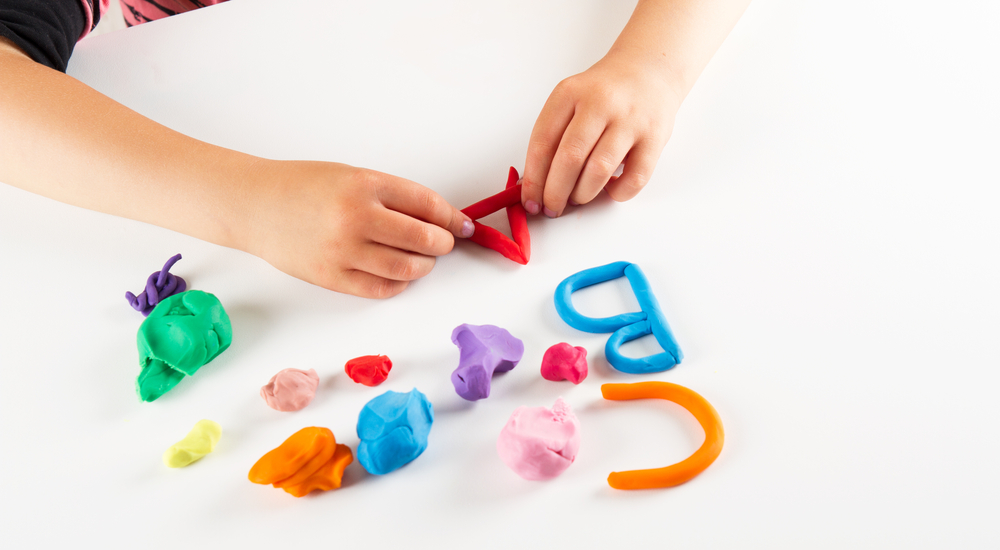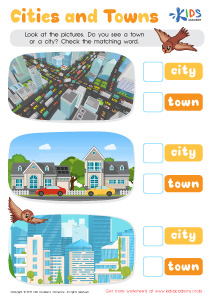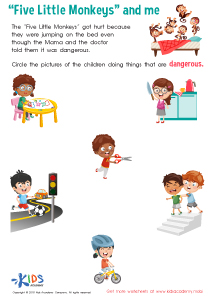Cognitive Development Easy Reading Worksheets for Ages 3-5
5 filtered results
-
From - To
Boost your child's cognitive skills with our engaging Easy Reading Worksheets designed for ages 3-5. These printable resources are perfect for nurturing young minds, focusing on critical thinking, problem-solving, and language development. Each worksheet is crafted to enhance your child's comprehension and vocabulary while making learning fun. With colorful visuals and interactive activities, children will love exploring concepts through play. Ideal for parents and educators, our worksheets can be easily integrated into daily routines or classroom settings. Discover the joy of learning with our Cognitive Development worksheets and watch your little ones thrive in their early educational journey!
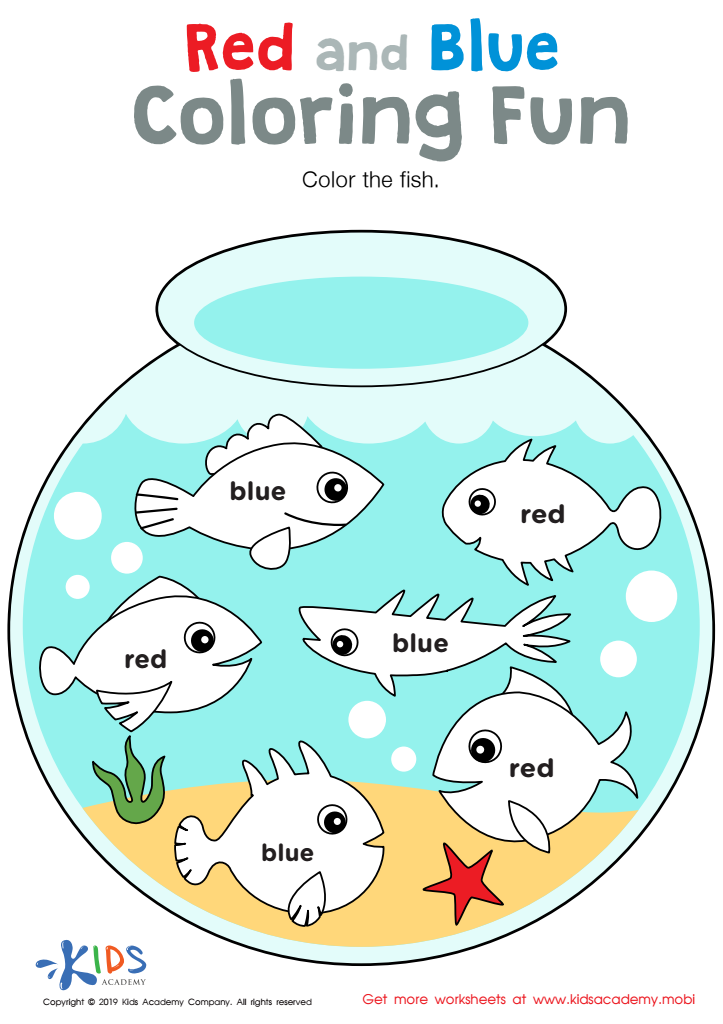

Red and Blue Coloring Fun Worksheet
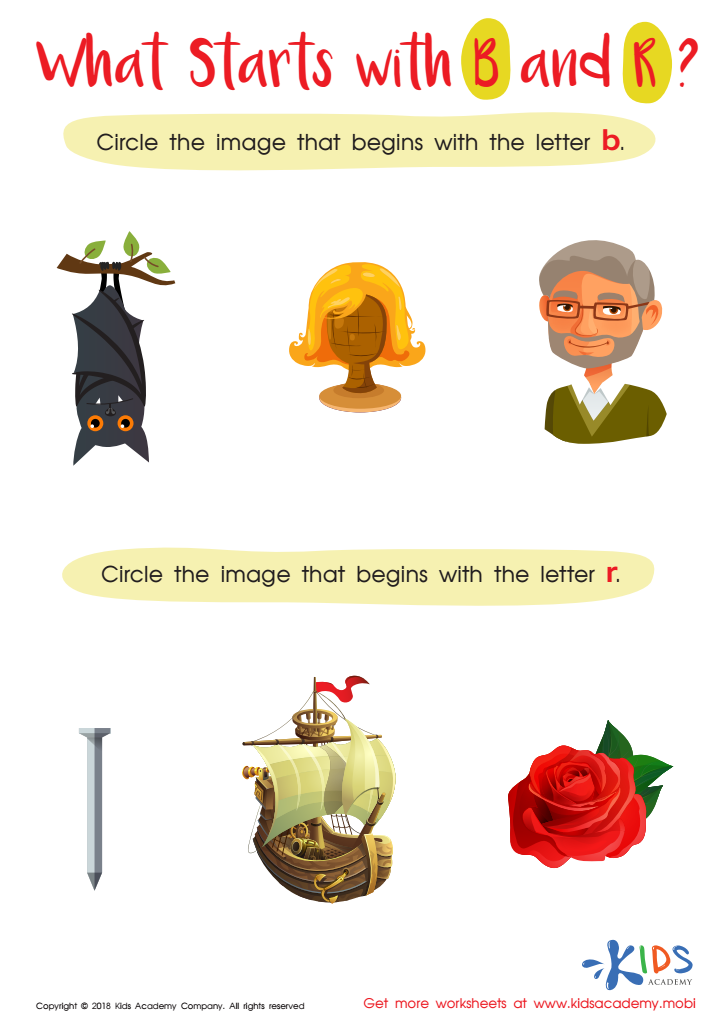

What Starts with B and R? Worksheet
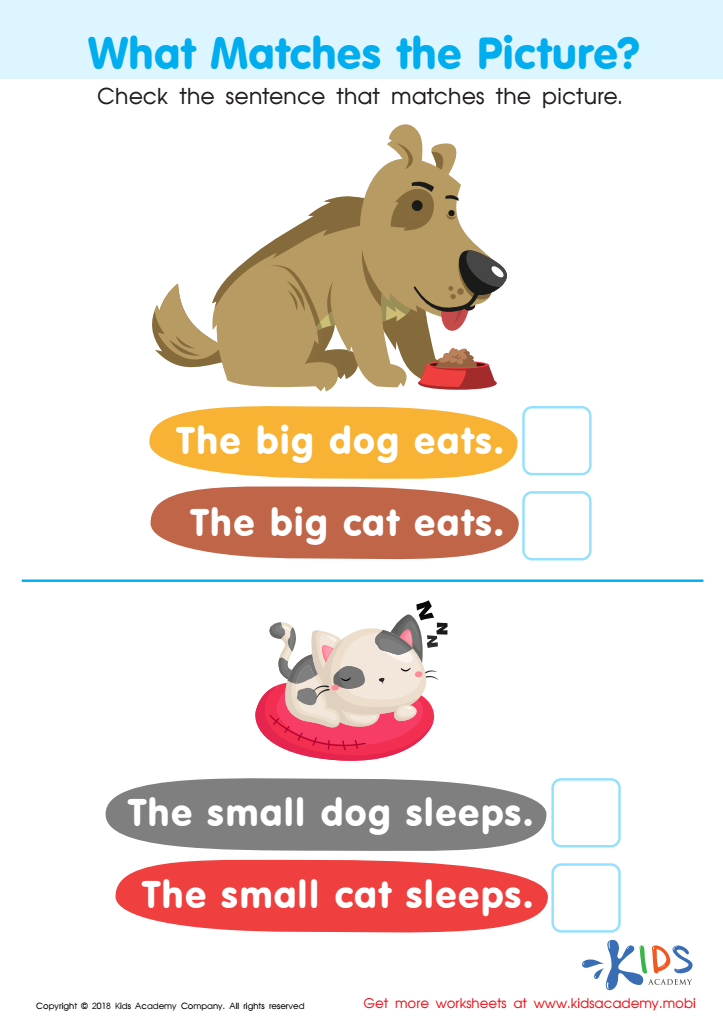

What Matches the Picture? Worksheet
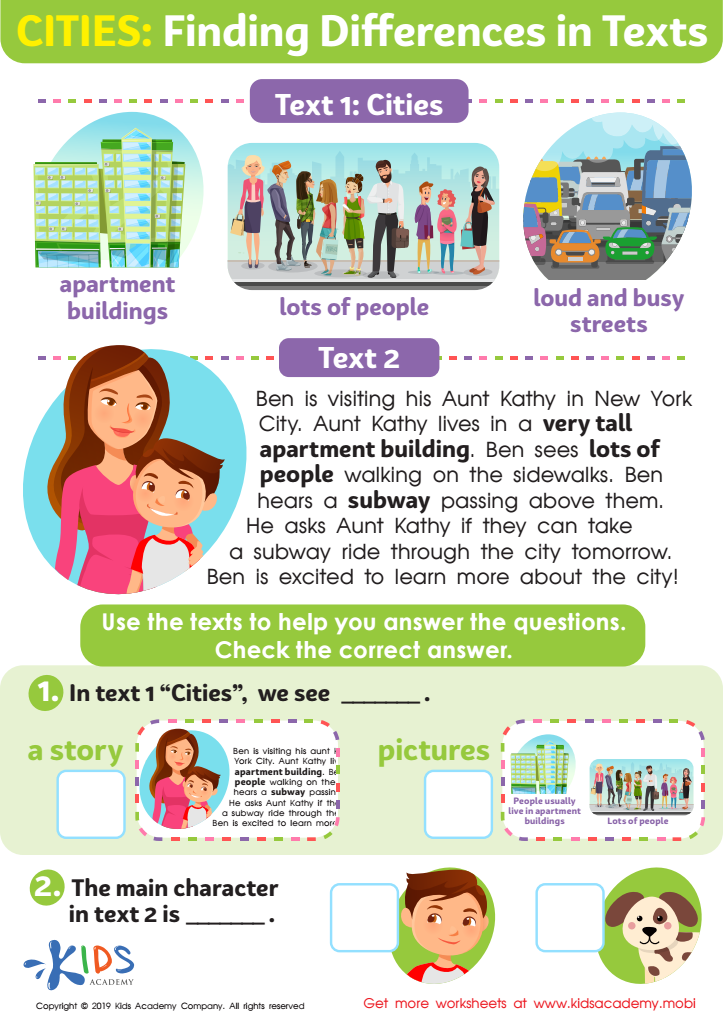

Cities: Finding Differences Worksheet
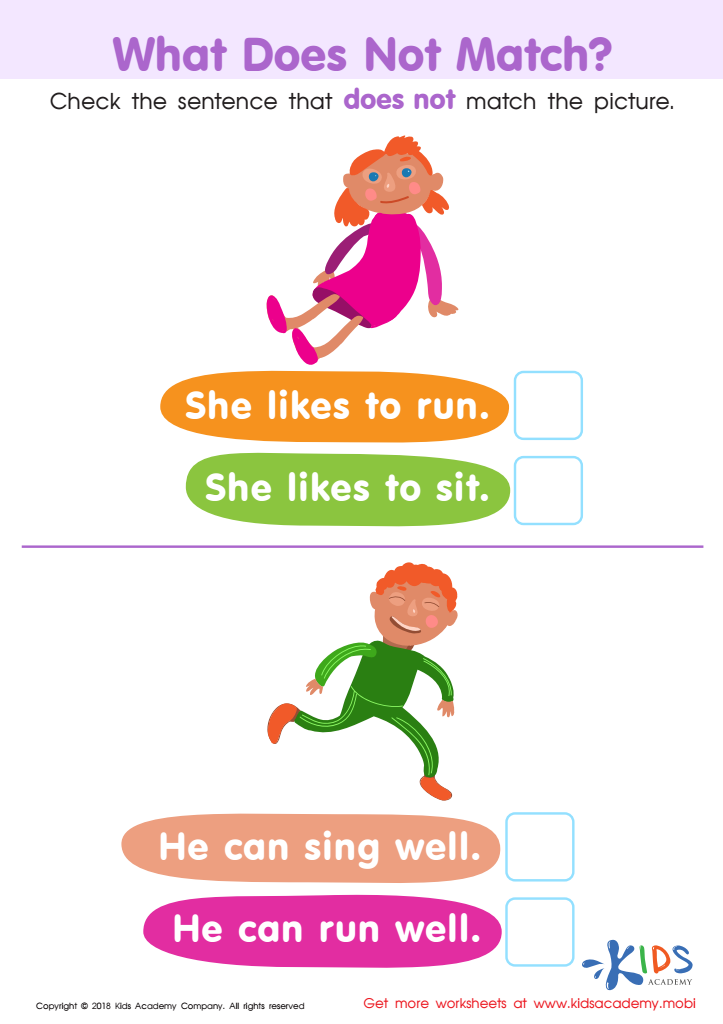

What Does Not Match? Worksheet
Parents and teachers should care about cognitive development in children ages 3-5 because this is a crucial period for building foundational skills. During these early years, children's brains are growing rapidly, and their ability to think, learn, and understand the world around them develops significantly. Engaging in easy reading activities helps enhance their language skills, improves vocabulary, and fosters critical thinking.
Reading together stimulates imagination and creativity, allowing children to express themselves and relate stories to their own experiences. It also encourages social-emotional skills, as children learn to understand characters' feelings and actions. Furthermore, easy reading introduces basic concepts like numbers, letters, and sounds, which lay the groundwork for future learning in math and literacy.
In this digital age, focusing on quality reading time can help foster a love for books away from screens. Parents and teachers can use simple stories to promote comprehension and dialogue, creating a stronger bond while supporting cognitive growth. Ultimately, nurturing cognitive development through easy reading not only boosts children's academic readiness but also helps them become more thoughtful, curious, and confident individuals in their everyday lives.
 Assign to My Students
Assign to My Students








